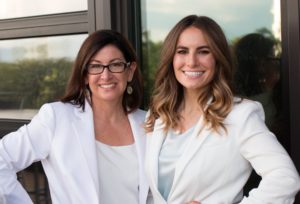Working with Third Culture Kids (TCKs) returning home for university (or “college” as it is referred to in the United States) is a special passion of mine. These young adults have grown up overseas and usually will live in the country of their passport for the first time, or at least the first time in a very long time. They face special challenges when searching for the right fit and match in higher education because living overseas has had a profound influence on their development.
Fitting In and Adjusting as Third Culture Kids
On the upside, Third Culture Kids typically have flexibility, a three-dimensional view of the world, an appreciation for world/news events, a love of multiculturalism, and an ability to live in high-intensity environments. Thinking positively, they might fit in perfectly in their new university and really love being back in their home country.
On the downside, environments that are not as stimulating as life overseas can often easily bore TCKs. They may experience a genuine sense of loss after leaving their last location abroad, and need time to adjust before settling in. They also can have difficulty assimilating at first with their peers, who have never ventured far from home. When some TCKs are not around other students who have had similar experiences, they can become frustrated by the lack of global awareness that others exhibit and instead gravitate towards other international students (if any) and/or campus activities that have a global focus.
Finding the same sense of community they had overseas seems to be what TCKs long for, yet is often allusive for them. They want to find a sense of belonging and are often surprised to find that it is more difficult to find in the place that is supposed to be ‘home’.
In addition to adjusting to life at college, Third Culture Kids often have many cultural adjustment issues to deal with. Some of them have little or no cultural identification with or sense of affection for the country of their passport. As one student so eloquently wrote, “…Unfortunately, a variety of factors combined to also create a feeling of complete disassociation with America during my childhood and adolescence. Only the deliberate study of American history and society, and the gradual exposure to globally aware Americans finally allowed me to identify myself as being an American and discover the many aspects of America that we can all be proud of.”
So, while other university students might be consumed with the process of adapting to university life, TCKs might also be secretly struggling with both the need to find friends who understand them and with the need to adapt to a culture that is not, or no longer, familiar to them.
Kristina Daniel, a Third Culture Kid and rising senior at Villanova University, has faced the struggle to fit in. She offers this advice, “You really have to be super involved to fit in, and it truly has been a lifesaver for me. It’s a great way to meet people… become friends with professors, faculty, and administrators. You’ll be surprised how much they can help you along the way. Put yourself out there… you have to make the effort.”
One student, who wishes to remain anonymous, offers this advice to Third Culture Kids:“I feel as though I am adaptable. It’s not really about fitting in but adapting to your location. As all TCKs know, every place is different but no matter where you go, you will find people like you and people you like, whether it comes quickly or it takes until senior year. Your experience, wherever it is, is what you do to make the most of it.”
An additional challenge that Third Culture Kids may face is being far from their parents, who may still be living overseas. “[For me] there was no real culture shock [when I went to college], except for the shock of being away from my parents and not being able to see them because they were so far away on the other side of the world,” reflects Adam Ahmed, an Egyptian-American. Close-knit families may feel the strain of so much distance between them, and distance makes the logistics of going away to school much more challenging as well.
Choosing the Right University
Third Culture Kids returning home for university have different factors they look for in choosing a university. The biggest challenge that I face in college counseling is getting TCKs and their families to keep an open mind to explore all kinds of possibilities. Many times students and families focus on perceived name recognition of a university, but it is more important to understand the concept of finding the right place for the student’s own individual needs, interests, abilities, personality and level of academic challenge. This is what we call the right “fit and match”. There is no “one size fits all” approach; it is all about meeting the individual student’s needs. Therefore, I always start the process with a good student self-assessment.
 Different kinds of universities or colleges may work for different kinds of students. For example, for some students, a big state university may be either too “rah-rah” and focused on competitive athletics or too big for them to feel comfortable. Yet others might gravitate towards the big cities and often narrow their searches to schools that are near major airports, or near relatives who can help and provide logistical support. Conversely, a smaller school in a rural area may seem too provincial and isolated, but for others the closeness of a smaller campus community may give them a sense of belonging.
Different kinds of universities or colleges may work for different kinds of students. For example, for some students, a big state university may be either too “rah-rah” and focused on competitive athletics or too big for them to feel comfortable. Yet others might gravitate towards the big cities and often narrow their searches to schools that are near major airports, or near relatives who can help and provide logistical support. Conversely, a smaller school in a rural area may seem too provincial and isolated, but for others the closeness of a smaller campus community may give them a sense of belonging.
Another factor to consider when choosing a university should be how active the student life on campus might be during weekends, especially for somebody who has lived abroad in a highly social and stimulating environment. Is there a lot going on? Is there a sense of community with student activities on campus? Or do people leave campus to go to the nearest city to find action? And for Third Culture Kids whose parents still live abroad, these students need to be careful not to attend a “suitcase” school where everyone goes home for the weekend. The same can be said for a school that is residential in nature versus a place where students commute daily.
 Some students are already certain about their majors and ready to get started on a career path, and that guides the process. Hossam Abdulraouf Banaja, who has a Saudi-Chinese-American background, comments, “I chose a college based on my passions and my career goals…there was no conscious, deliberate connection between being a TCK and the final decision I made. The great thing about being a TCK is that, socially, we fit in so well in almost any situation, so my advice would be to not have, ‘How should being a TCK affect my decision?’ as one of your criteria, but instead focus on where to get the best education in your field and get you closer to your career goals.”
Some students are already certain about their majors and ready to get started on a career path, and that guides the process. Hossam Abdulraouf Banaja, who has a Saudi-Chinese-American background, comments, “I chose a college based on my passions and my career goals…there was no conscious, deliberate connection between being a TCK and the final decision I made. The great thing about being a TCK is that, socially, we fit in so well in almost any situation, so my advice would be to not have, ‘How should being a TCK affect my decision?’ as one of your criteria, but instead focus on where to get the best education in your field and get you closer to your career goals.”
But for other students, finding a place where they already know people is more important. They flock to major cities or colleges where they have friends from “home”, or their last posting overseas. Yet, when they follow the crowd, they often do not maximize the best educational opportunity for themselves as individuals.
How does a student weed through all these competing factors? “Make a list of what is important to you,” suggests Sara Gilmer, a graduate of William and Mary. “Do you want to be able to speak Arabic in the cafeteria on a daily basis? Will you feel comfortable if there are few people from other countries or cultures? Also, how do you define other cultures? There are a variety of sub-cultures even within the U.S. (or other countries). What values and beliefs are important to you, and do these values and beliefs have a place at this institution? Will you feel smothered in a small town if you are used to a metropolis? Does (the university) offer the curricula and activities that interest you?”
Wanting To Transfer
Third Culture Kids are also used to moving every few years, and therefore it is not surprising that when they start to get bored, or to think that things are not going well, they want to transfer as a way to solve the problem(s).
However, when I get called about a student wanting to transfer, I start asking all kinds of other questions. How is it going academically? Are there emotional or psychological issues that are presenting problems? Is it a question of adjusting and finding a sense of personal connection?
There are many tools at our disposal to help turn around difficult situations, so it is worthwhile to investigate these options before making any quick decisions about a transfer. If the root causes of the problem are not identified, the student may encounter the same problems elsewhere. So, it is important to take the time to delve deeper into a TCKs desire for a transfer and try to see if there is another solution.
Reverse Culture Shock
Returning to their passport country, Third Culture Kids might also be naïve about certain things. They may look like a cultural native of their country, but may face reverse culture shock and even language difficulties, if they were not speaking the language of their passport country abroad. For example, a student who has only been educated in English may find it challenging to return to a German university system where the academic language skills needed are different from the conversational language skills they may have.
Picking up on social cues that everyone else takes for granted is sometimes another challenge that TCKs face. This is made harder by the fact that their peers usually see them as ‘locals’ and might not be as patient with them as they might be with international students (who are often extended more of a helping hand because they typically ‘look’ foreign).
Still another challenge is the paradox between institutional tolerance and self-segregation of certain ethnic groups on some campuses.
For example, Sahaja, a student of Nepalese descent, who repatriated to attend a highly-selective university, commented that, “I was surprised by how segregated the student population was. Each ethnic/racial group seemed to hang out together. My high school experience was very much the opposite so I was a little surprised by the voluntary clumping of colors and ethnic groups.”
Yet at another university, this may not be an issue at all. To find out how truly diverse an institution might be, prospective students should refer to social networking and student-oriented websites to get a feel for the campus culture. Of course, nothing can replace the advantage of making a campus visit when students are present.
Final Words
There are many factors to be considered when dealing with Third Culture Kids in the quest for the right college or university. Multiple factors must be taken into account when making important decisions about where TCKs study and how much external support they might need. But these “global nomads” also have much to offer a university community, for they bring with them an array of experiences and cross-cultural skills.
Stephanie Brensinger, a Texas Technological University undergraduate and graduate student who grew up in the Middle East, offers these final words of advice to TCKs, “The best thing you have to offer to society is respect and appreciation for diversity. Embrace it.”
June 2009
© Rebecca Grappo, Written for ExpatWomen.com.
Rebecca Grappo, M.Ed., founder and president of RNG International Educational Consultants, is a Certified Educational Planner and member of the International Educational Consultants Association, the National Association of College Admissions Counselors, and the Overseas Association of College Admissions Counselors. She specializes in helping TCKs and international students to find the right school for their individual needs. She continually visits colleges and universities in the United States, and considers quality college counseling an art. You can visit her website at www.RebeccaGrappo.com or send her an email at [email protected].
Ines, please link this:
William and Mary
To:
http://www.wm.edu/
[1] “A Third Culture Kid (TCK) is a person who has spent a significant part of his or her developmental years outside the parents’ culture. The TCK builds relationships to all of the cultures, while not having full ownership in any. Although elements from each culture are assimilated into the TCK’s life experience, a sense of belonging is in relationship to others of similar background.” David Pollack and Ruth Van Reken, authors of The Third Culture Kid Experience.














